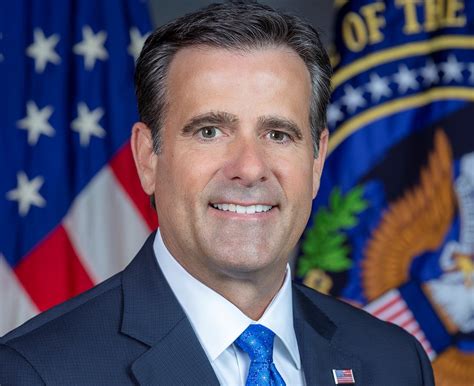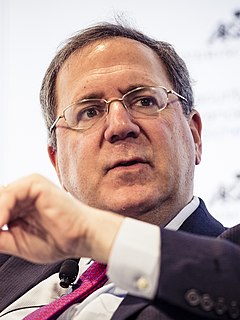A Quote by Heather Brooke
In America, you have the Cyber Intelligence Sharing and Protection Act. You've got drones now being considered for domestic surveillance. You have the National Security Agency building the world's giantest spy center.
Related Quotes
What we've seen over the last decade is we've seen a departure from the traditional work of the National Security Agency. They've become sort of the national hacking agency, the national surveillance agency. And they've lost sight of the fact that everything they do is supposed to make us more secure as a nation and a society.
Everyone is now considered a potential terrorist, providing a rational for both the government and private corporations to spy on anybody, regardless of whether they have committed a crime. Surveillance is supplemented by a growing domestic army of baton-wielding police forces who are now being supplied with the latest military equipment.
If Israeli intelligence that has been shared with the United States - whether the National Security Agency, the C.I.A., the Defense Department, or the White House - is not safely guarded, Israel faces a major threat to its security. Cooperation with America's agencies is deeply embedded in Israel's intelligence community.
The U.S. has the most advanced cyber-weaponry on the planet, and t if you look at the U.S. from the perspective of the Chinese People's Liberation Army, which runs most of its cyber activities, they look at you and they see Google and Facebook - the two largest depositories of personal data in the world - and they see the reach of the National Security Agency, which has huge digital capacity to know what is going on around the world. So the Chinese would see cyber as an un-level playing field, because the U.S. holds all sorts of advantages.
Today is just to the beginning of a long and overdue national discussion on how to protect ourselves from modern cyber crime and evolving national security threats and how to develop the cyber offense strategies necessary to gain a critical security edge in the 21st century. We need the edge, and ideally, a big one.
My view is that the cyber threat is bigger than any one government agency - or even the government itself. But the FBI brings a rare combination of scope and scale, experience, and tools to the mix. We investigate criminal activity like intrusions and cyber attacks, but we also investigate national security threats like foreign influence.





























